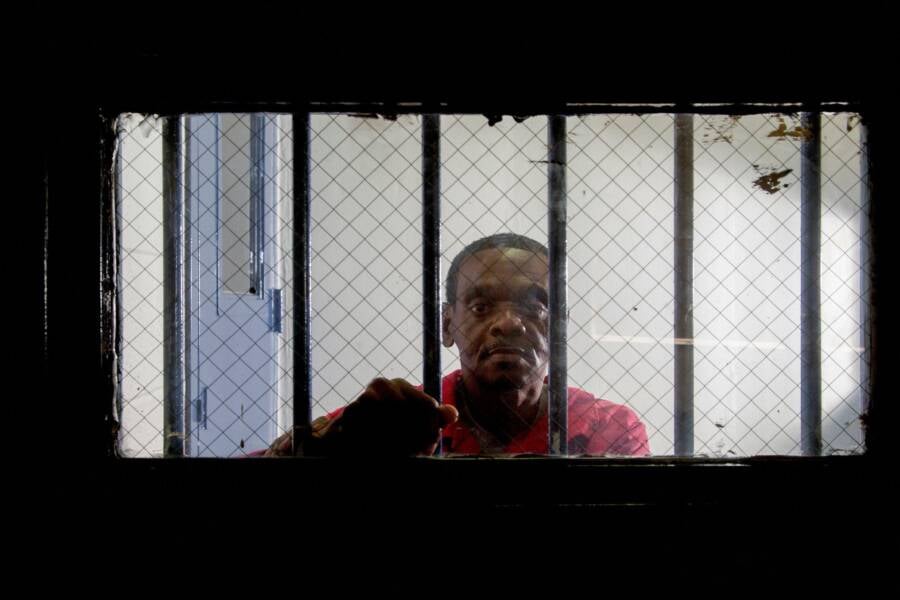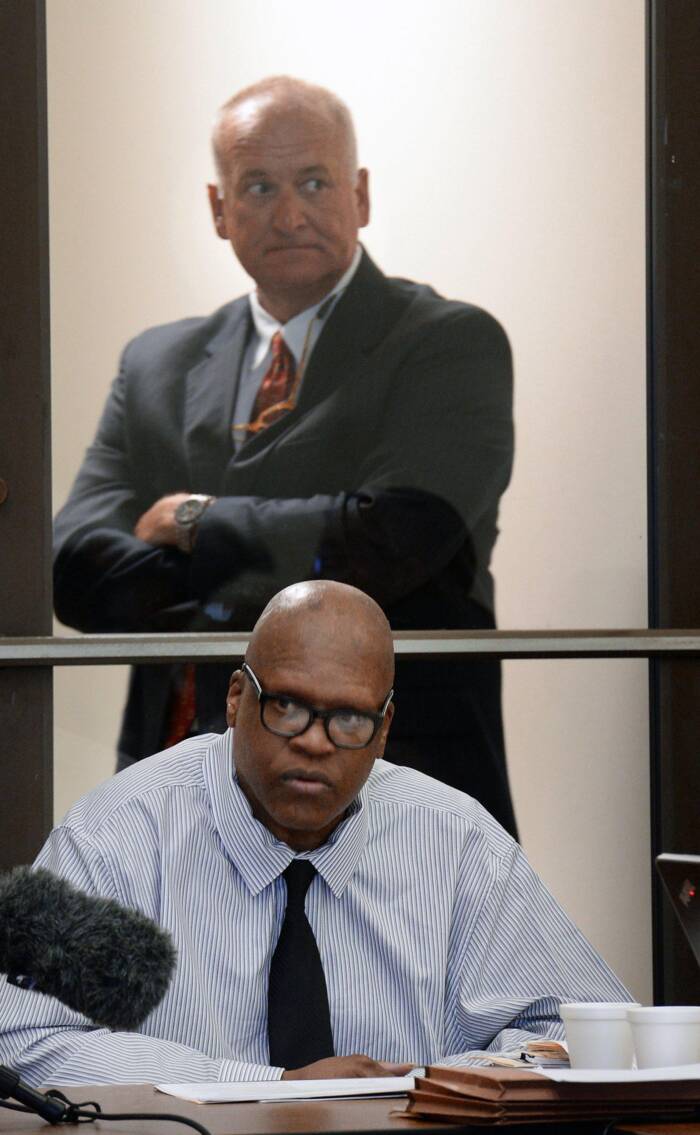Henry McCollum, Leon Brown, And The Murder Of Sabrina Buie

Tribune Content Agency LLC/Alamy Stock PhotoHenry McCollum being held in prison after his wrongful conviction.
In September 1983, 11-year-old Sabrina Buie left her North Carolina home, either to go to an arcade or to return a bicycle. In either case, she never returned home, and her father reported her missing on September 25th.
The next day, September 26th, Sabrina’s body was found. She had been raped and killed, and Police Chief Luther Haggins described it at the time as “one of the most brutal murder cases” he’d ever investigated.
Shortly afterward, police in Robeson County brought in 19-year-old Henry McCollum for questioning, as he had reportedly claimed to have seen Sabrina walking to a store shortly before the murder. McCollum, and his 15-year-old half-brother Leon Brown, also happened to be intellectually disabled — which fueled rumors about their possible involvement. These rumors apparently made their way to the police, and so they sat both teens down for hours-long interrogations without a lawyer present.
Police allegedly threatened McCollum with a death sentence if he didn’t admit to the crime, and purportedly used racial slurs. Both McCollum and Brown said they were coerced into confessing to the murder, and though they quickly recanted their confessions, their fate was already sealed.
No physical evidence linked either boy to the crime, but since they already confessed, they were both found guilty of murder and sentenced to death. Though the State Supreme Court gave them retrials, McCollum was sentenced to death yet again and Brown was sentenced to life in prison.

Tribune Content Agency LLC/Alamy Stock PhotoLeon Brown learning of his exoneration following his wrongful conviction.
While in prison, both men suffered from severe mental health issues, ranging from depression to hallucinations. They spent a total of 31 years behind bars, only for DNA found on a cigarette butt at the crime scene to finally clear their names — though it took until 2014 for that to happen.
That year, investigators were able to link the DNA sample to a man named Roscoe Artis, who lived just around the corner from the Buies in 1983. Artis, just weeks after Sabrina’s murder, had also killed a woman named Joanne Brockman, and in several interviews, he had offered clues about the Sabrina Buie case and said repeatedly that McCollum and Brown were not responsible for murdering the young girl.
This information, somehow glossed over, finally made McCollum and Brown free men. For the Buie family, however, it also served as a brutal reminder of a tragedy that happened way back in 1983.
“It feels like hell,” the victim’s sister Tenita Buie said. “It feels like I’m trapped in hell and can’t get out cause I’m wondering now will she be forgotten.”





